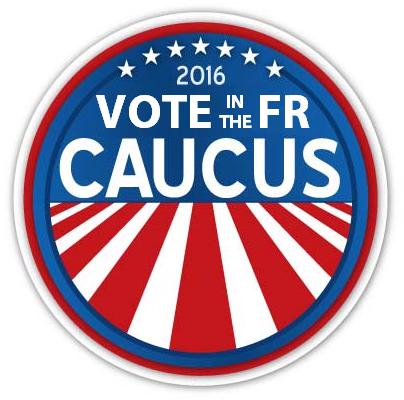
Posted on 02/23/2016 7:11:16 PM PST by Tolerance Sucks Rocks
Ever since the financial crisis, many outside the wealthy elite (sometimes referred to as populists) have argued that the largest banks are too big and too risky. Minneapolis Federal Reserve president Neel Kashkari recently echoed those beliefs.
Yet if a new Federal Reserve proposal goes through, Wells Fargo and other large banks might get even bigger and riskier, adding billions to their balance sheets that could increase the banks’ risk profiles.
The Federal Reserve says the proposal, which specifies the amount and kind of debt that systemically important large banks must hold, could help make sure that those banks can be wound down without financial assistance from taxpayers. But in a speech delivered in late January, FDIC Vice Chair Tom Hoenig, said “It is difficult to accept that more leverage [i.e. more debt] solves the destabilizing problem of leverage.â€
In fact, Hoenig said, the proposal would likely make giant banks even more susceptible to risk. “It is paradoxical to suggest that the best way to manage the effects of excess leverage and financial vulnerability is to require more leverage, potentially raising financial vulnerability.†The proposal, he says, would encourage “the industry and firms to add risks that may be inconsistent with conventional safety and soundness principles.â€
The proposal was open to public comments through February 1.
The Federal Reserve estimates that the eight largest systemically important banks have a $120 billion balance sheet shortfall in terms of meeting the new requirements.
While some of the requirements might be satisfied through existing sources of debt, Pri de Silva, senior analyst for U.S. banks at CreditSights, told me he estimates that $60 billion in new debt (or extensions to expiring debt) would be needed to satisfy the requirements at the eight banks. On top of that, he believes, to add cushion, those banks might ultimately need to issue $55 billion to $75 billion more in debt.
At Wells Fargo wfc , de Silva says it is likely that at least two-thirds of its $46 billion shortfall would be made up with the issuance of new or extended debt. On top of that, Wells Fargo might need to issue an additional $13 billion to $20 billion in debt over time to establish a sufficient cushion to meet the proposal’s requirements.
All of that debt could spell big trouble for big banks. In his speech, Hoenig expressed concern that, “As firms issue large amounts of additional, and more expensive, long-term debt and increase their leverage position, such funds must earn commensurately higher returns to meet debt service and avoid default. Such requirements may encourage banks to acquire higher-yielding and higher-risk assets, or expand into non-bank activities, such as broker-dealer operations.â€
There are better solutions for regulators to consider, some of which Hoenig mentioned in his speech. Kashkari also proffered solutions on Feb. 16. He said the banks need to be broken up or consider other “transformational options” to prevent “widespread economic collapse.”
The proposed debt requirements stem from global conversations on how to handle the risks posed by large banks. But just because the world jumps off a cliff, it does not mean the U.S. should follow. Making the largest banks even bigger and riskier makes little sense.
The Federal Reserve says it “intends to consult with the FDIC,†among others, “after it reviews comments on the proposal.†They should talk to Tom Hoenig and others who can counter their current short-sightedness.
Eleanor Bloxham is CEO of The Value Alliance and Corporate Governance Alliance (http://www.thevaluealliance.com), an independent board education and advisory firm she founded in 1999. She has been a regular contributor to Fortune since April 2010 and has advised analysts, regulators, shareholders and banks of every size on the economics of financial services.
Full title:
The World’s Biggest Banks May Very Well Grow Even Larger, if a new Federal Reserve proposal goes through.
Too bad FR does not have a “stupidity” topic, which would fit what the Federal Reserve is trying to do here.
“There are better solutions for regulators to consider, some of which Hoenig mentioned in his speech. Kashkari also proffered solutions on Feb. 16. He said the banks need to be broken up or consider other “transformational options†to prevent “widespread economic collapse.â€
During the 30s, thousands of tiny banks went broke at the same time, causing widespread economic collapse.
My late father warned of this even in the 80’s. Same with SWAT teams (in big cities at the time). He was conservative/libertarian before his time. Business owner as well.
These are very complex proposals.
I suggest that everyone read Hoenig’s remarks to gain a better insight into what is being proposed:
https://www.fdic.gov/news/news/speeches/spjan2016.html
If you don’t understand what he’s talking about, then maybe this topic isn’t for you!
Re authorize Glass-Stiegal. Increase equity and liquidity requirements. That will do much to handle the matter.
Why?
Increase equity and liquidity requirements.
They keep raising capital requirements. Then they're shocked that banks don't lend and the economy doesn't grow.
That will do much to handle the matter.
Only if you want more stagnation.
Because commercial banks and investment banks are two different types of entities. Risk capital for investment banks is different. Loan loss reserves should be 3 percent or better capital adequacy 15 percent.
How did you come up with these numbers?
43 years in commercial banking. And you are wrong about banks getting in trouble after Glass-SteagLl was repealed.
But why those numbers?
And you are wrong about banks getting in trouble after Glass-SteagLl was repealed.
Which banks got in trouble for doing things they couldn't do under Glass-Steagall?
How does Citigroup measure up to your desired numbers?
Disclaimer: Opinions posted on Free Republic are those of the individual posters and do not necessarily represent the opinion of Free Republic or its management. All materials posted herein are protected by copyright law and the exemption for fair use of copyrighted works.